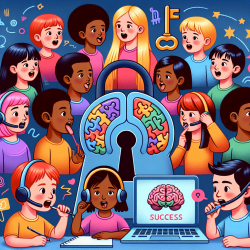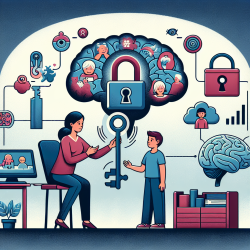The COVID-19 pandemic has posed significant challenges for delivering trauma-focused cognitive behavioral therapy (CBT) to patients with post-traumatic stress disorder (PTSD). Restrictions have forced therapists to pivot to remote therapy, utilizing video conferencing and telephone calls to continue providing care. This shift has raised questions about the effectiveness and safety of remote trauma-focused CBT. Fortunately, a recent study titled "Treating posttraumatic stress disorder remotely with cognitive therapy for PTSD" offers promising insights and practical adaptations for remote therapy.
Here are key takeaways and actionable steps for practitioners to enhance their remote therapy sessions:
1. Establish a Strong Therapeutic Alliance
Building a strong therapeutic relationship is crucial for successful remote therapy. While nonverbal cues are limited, therapists can rely on verbal statements and a warm tone of voice to convey empathy and support. Regularly ask for patient feedback to ensure a joint understanding and address any doubts or concerns.
2. Ensure Privacy and Safety
Both therapist and patient need a private, quiet space for sessions. Therapists can reassure patients by showing their room via camera to confirm privacy. If privacy at home is not feasible for the patient, alternative solutions like speaking from a car in a quiet location can be considered.
3. Utilize Technology for Collaboration
Sharing screens during video conferencing can help in working collaboratively on case formulations, maintenance cycles, and updating trauma memories. For telephone sessions, sharing documents and media files via email or SMS can serve the same purpose if the patient consents.
4. Engage in Reclaiming Life Assignments
Reclaiming life assignments are essential for helping patients engage in enjoyable or meaningful activities they have stopped since the trauma. These activities can be adapted to fit within current restrictions. Examples include online exercise classes, creative writing, or virtual social interactions.
5. Adapt Memory-Focused Techniques
Updating trauma memories involves identifying and modifying trauma-related meanings. This can be done through imaginal reliving or narrative writing. For remote sessions, narrative writing is often more manageable, allowing for better pacing and control.
6. Conduct Virtual Site Visits
If in-person site visits are not possible, virtual alternatives like Google Street View can be used. This allows patients to experience that the trauma is over and discover new information to update their meanings.
7. Address Problematic Appraisals
Use cognitive restructuring techniques to work with meanings linked to common cognitive themes associated with PTSD. This can involve Socratic questioning, surveys, pie charts, and behavioural experiments, all of which can be done remotely.
8. Drop Unhelpful Behaviours
Guide patients to experiment with increasing and decreasing safety behaviours and rumination. This helps them discover the effects of these behaviours on their anxiety and sense of threat.
9. Create a Blueprint for Relapse Prevention
The blueprint is a relapse prevention plan that summarises key learnings from treatment and steps to build on this learning. It can be completed as a homework assignment and reviewed in subsequent sessions.
Remote cognitive therapy for PTSD can be as effective as in-person sessions with the right adaptations. By following these steps, practitioners can continue to provide high-quality care and support to their patients during these challenging times.
To read the original research paper, please follow this link: Treating posttraumatic stress disorder remotely with cognitive therapy for PTSD.










